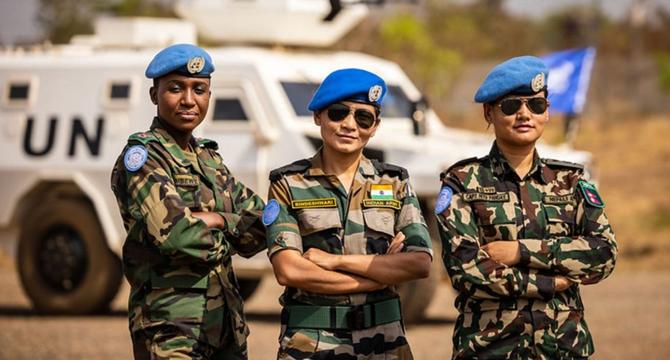Gritdaily
1M
325

Image Credit: Gritdaily
The Changing Face of UN Peacekeeping: Women on the Frontlines
- The Women, Peace and Security agenda has played a crucial role in enhancing women's involvement in UN peacekeeping operations over the past 25 years.
- Although progress has been made, women still only make up 8.4% of the 76,700 uniformed peacekeepers, indicating a slow march toward equal representation.
- The UN aims to have at least 15% women in military personnel by 2028, facing challenges like limited career advancement and societal perceptions.
- Countries with better gender equality records deploy more women peacekeepers, emphasizing the influence of domestic military policies.
- The presence of women in peacekeeping missions is not enough; meaningful participation is hindered by stereotypical roles and underutilization of skills.
- Countries like South Africa, Ghana, Ethiopia, and Tanzania have exceeded UN targets for female peacekeepers, while others like India lag behind.
- To drive genuine transformation, financial incentives based on high-ranking women in contingents and specialized training are proposed by experts.
- The story of women in UN peacekeeping reflects broader discussions on representation, security, and the critical role of women in peace processes.
- As the world celebrates International Day of UN Peacekeepers, the focus shifts to systemic changes in deployment practices for true progress.
Read Full Article
19 Likes
For uninterrupted reading, download the app